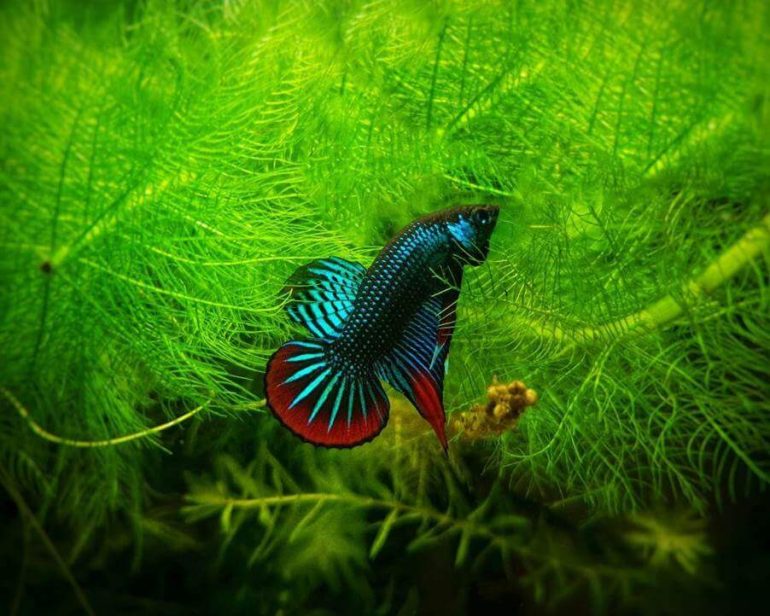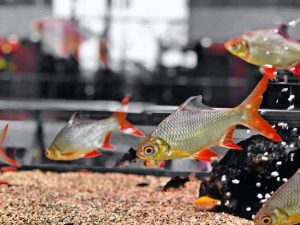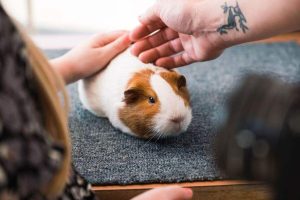Cats and dogs are the most popular pets found in Australian households, but they are too much of a responsibility for many people. If you’re the kind of person with a busy professional life and want to own a pet that doesn’t require extra work, then consider a pet fish or guinea pig. Why a pet fish? Because they can be the centerpiece of any room, and observing them in their natural environment can bring a sense of relaxation that sometimes we all probably need.
On the other hand, guinea pigs are playful and active animals that can always get into funny situations and are small enough not to require extensive care. But any pet ownership situation comes with its own set of questions and challenges. Do you know what you should look out for when buying fish food? Do you know which elements denote quality in Guinea pig food? Do you understand how you should set up the aquarium of your fish or what you should place in the cage of your guinea pigs? In the following article, we will try to answer these questions and list the advantages of owning these animals.
Why Have a Pet Fish?
There are over thirty thousand fish species worldwide, and only a tiny proportion of them are suitable pets. Nevertheless, when talking about such a wide variety, we are still left with a plethora of freshwater and saltwater fish that can be the perfect accessory to bind a room together. Fish don’t need extra attention from you, but only a properly maintained aquarium and quality fish pellets. So, what should this aquarium look like?
First and foremost, the aquarium you choose should be large enough to accommodate your fish when they reach maturity. When you buy your fish from a pet shop, it will probably be no longer than a few centimeters, and in a proper environment, it is likely for its future growth to surprise you. Goldfish, for example, are among the most popular pet fishes but are notorious for the sizes they can reach once they find themselves in a proper aquarium where they have access to large quantities of food.
Your fish tank will need a quality filter, a pump to provide the fish with the oxygen they need, and a substrate on the bottom of the aquarium. It is also essential to use only distilled water when filling the fish tank, and it’s crucial to pre-treat the water with a conditioner because it’s the only way to introduce the necessary bacteria necessary for proper fish development into the aquarium environment.
What About Fish Food?
Most of the fish available to purchase are omnivorous, which means they can be fed with meat-based fish pellets and with supplements such as spirulina. However, there are exceptions, and one of them is the Betta, one of the most common pet fish, which is a carnivore. Aiming for high-quality fish food from reputable manufacturers such as Tetra, Spectrum, or Blue Planet would be great, as well-known brands usually have the best quality control.
As a general rule, high-quality fish food is high in protein and low in phosphates, with a minimum protein percentage of 35%. You should also look for pellets that have added minerals, vitamins, and probiotics, which can keep your fish healthy in the long run. The way you feed your fish is also meaningful. You should only give your fish a few pellets at a time, as many of them will go to the bottom of the tank, and unless you also have bottom dwellers, they will remain untouched.
What About Guinea Pigs?
Guinea pigs can be the perfect pet if you want a low-maintenance, high-energy fluffball that can always get into silly situations. Guinea Pigs can live in captivity for more than seven years, significantly longer than other rodents such as hamsters. They are also generally healthier, easier to groom, and less skittish than other critters. Being social creatures, it is always best to buy them a pair; otherwise, they can become stressed. They must also have enough stimulation in their cage, as they are active for over twenty hours per day.
Regarding nutrition, quality guinea pig food should generally consist of Timothy hay and limited amounts of fruits and vegetables. Guinea pigs are herbivorous animals, and proper guinea pig food should come in the form of low carbohydrate pellets that provide a welcome supply of minerals and vitamins, which is particularly important given that guinea pigs, unlike other mammals, cannot produce vitamin C on their own.
An alternative to commercially made guinea pig food can include apples, cucumbers, or carrots. However, all these treats have sugar, and excess consumption can hurt your furry friend’s digestive system. It is also important to never feed your pet guinea pig avocado, bread, chocolate, potatoes, onions, or mushrooms, as these are toxic to them or cannot be adequately digested. You will also need to be careful about the amount of guinea pig food they are given, as they are overeaters and, left unattended, would soon start to suffer from weight problems.
Your Small Pet Can Be a Big Responsibility
Guinea pigs and fish are not animals that require the same level of attention as a dog or cat, but they still depend on you to live long and healthy lives. The pet ownership process will sometimes include making decisions for which you need to be knowledgeable. Whether you have to choose the right fish food for your aquatic friends or you have to choose the appropriate bedding or guinea pig food for your funny critter, making the right decisions is a reality of pet ownership.
But this responsibility pales in comparison to the joy these animals bring. Sometimes we need a purpose; to know that we have a little soul out there that needs our minimal assistance. And perhaps we lead complicated lives, and sometimes we don’t have time for much of anything, but when you get home after work and see that little fluffball sleeping in its cage, or the fish in the aquarium swimming carefree, maybe we can get a little relief from the stress and worries of everyday life.



